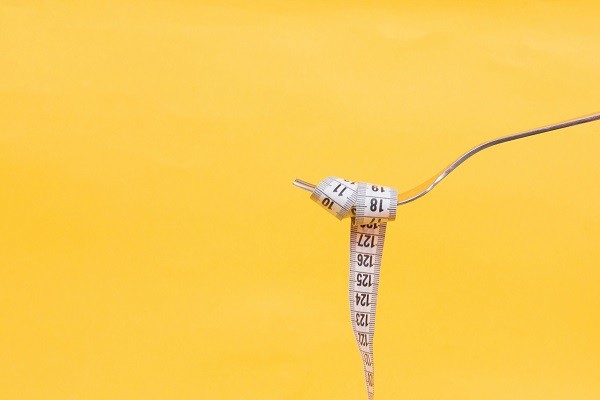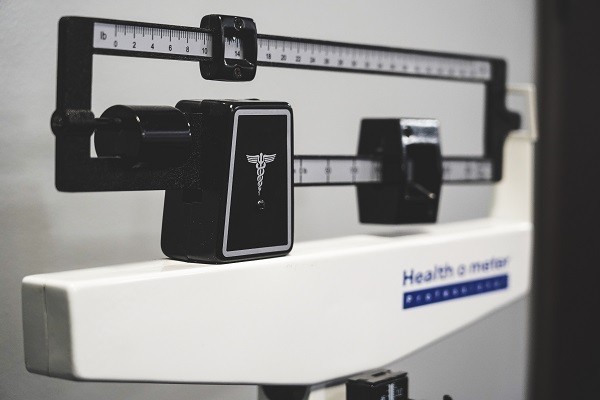How Does Fat Loss Actually Happen?

Where does the fat go when we lose it?
Ask a fitness fanatic and they'll say many things. Some will say it gets turned into energy or heat, and others will say it's broken down and excreted.
But according to recent research conducted right here in Australia, we actually exhale it.
Our excess calories are stored in the body as fat, specifically, as triglyceride molecules, in which there are three atoms:
- Carbon
- Hydrogen
- Oxygen
And when our triglycerides are broken up (scientists call it "oxidised") this process eats up many molecules of our carbon dioxide AND water as waste products.
We then breathe this carbon straight out of our lungs!
And the water can be excreted in the urine, breath, sweat, breath, tears or other bodily fluids.
The researchers behind this Australian study showed that 84% of the fat lost turns into carbon dioxide and leaves the body through the lungs, whilst the remaining 16 per cent becomes water.
And specifically, to burn 10 kilograms of fat, we'd need to inhale 29 kilograms of oxygen, whereby the pathway to burning that fat will produce 28 kilograms of carbon dioxide and 11 grams of water.
So, weight loss becomes a game of losing carbon.
And the study found that an hour of jogging, as opposed to resting, reduces an additional 40 grams of carbon from the body.

A calorie deficit for weight loss
The laws of fat loss remain the same. However, it's still governed by a calorie deficit.
And in this case, it's a deficit of carbon; we must burn more carbon than we consume!
Something else to consider is that we don't "burn" fat in the sense we get rid of it forever. This is another common misconception in the weight loss world.
We simply shrink the size of our fat cells when we "lose" weight. We can't get rid of them completely.
Research shows we burn fat from within the fat cell, and when we "regain" the weight, the fat cell (adipocyte) fills up again.
Is cardio and dieting better than just dieting alone for burning more carbon?
Some people perform cardio thinking it will inherently burn more fat.
But that's not the case.
Whether you achieve a deficit of calories from dieting, or a combination of diet and exercise, studies show your final fat loss result will be the same.

Of course, cardio contributes to a calorie deficit, but don't expect it to yield any additional fat loss results.
You can spend six hours a day performing cardio, but if you're eating more calories than you burn, you are still going to lose weight.
The fundamental truths of energy balance will always remain the same.
The bottom line is that, as the researchers point out, the lungs are the primary excretory organ for weight loss. Fat doesn't get turned into energy or heat or broken down and excreted. Our excess calories are stored as fat (triglyceride molecules) in which the three atoms: carbon, hydrogen, and oxygen. When the triglycerides are broken up, the result is 84% carbon, which is then breathed out!
References:
- Goldberg IJ. Triglyceride: one molecule at the center of health and disease. Biochim Biophys Acta. 2012;1821(5):719-720. doi:10.1016/j.bbalip.2012.02.005
- MacLean PS, Higgins JA, Giles ED, Sherk VD, Jackman MR. The role for adipose tissue in weight regain after weight loss. Obes Rev. 2015;16 Suppl 1(Suppl 1):45-54. doi:10.1111/obr.12255
- Meerman R, Brown A J. When somebody loses weight, where does the fat go? BMJ 2014; 349 :g7257 doi:10.1136/bmj.g7257
- Strasser B, Spreitzer A, Haber P. Fat loss depends on energy deficit only, independently of the method for weight loss. Ann Nutr Metab. 2007;51(5):428-32. doi: 10.1159/000111162. Epub 2007 Nov 20. PMID: 18025815.
Related Blogs

Will We Burn More Fat in the “Fat-Burning Zone” ?
Posted by Bulk Nutrients
Estimated reading time: 5 minutes

Is HIIT Worth the Fuss for Fat Loss?
Posted by Bulk Nutrients
Estimated reading time: 4 minutes

Do You Lose Muscle Mass and Get Fatter as You Age?
Posted by Bulk Nutrients
Estimated reading time: 5 minutes














































